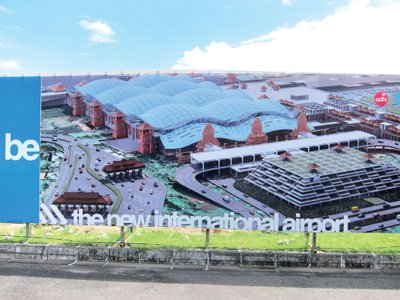Phuket property: Asia’s big two markets mature

PHUKET: Talk about “dream island destinations” in Asia and without a doubt Phuket and Bali rule the numbers game in terms of popularity.
If talk turns to resort real estate both are heavyweight contenders in the title fight. Round after round, punches or blows only end with the ringing of a bell. Practically speaking, when it comes to the life cycle of property, Phuket arguably has moved through the business milestones faster than its counterpart.
In what is often referred to as the “Golden Age” starting at Y2K (or in much simpler terms the 2000’s) up to the sub prime dilemma, the market went from a developing one to a monster on steroids.
Trends in the past are often the key to understanding the future so we have our work cut out for us.
From the early days, supply and demand were incredibly favorable as buyers flocked to our shores faster than developers could launch projects. First came direct sales, moving into a more sophisticated model of brokerage agencies, which then sprouted wings and multiplied.
Next were investment buyers who supplanted the early end users. The calendar which many thought of as human years turned out to be compacted into a shorter term growth cycle closer to dog years (especially the bigger breeds who are likely to bite the bullet after nine or ten years).
Infrastructure for real estate also moved up and onwards – legal and tax advisors, designers, interior fit out specialists, landscapers, and a host of others arrived. Then glossy publications, mass movement road shows and international profiles took the message far and near.
Later, secondary sales (re-sales) went, with an incredible growth stint, from infancy to now dominate broad resort grade transactions. Short-and-long-term rentals, vacation lets, fractionals, condo and villa resorts – the hybrid products now took the industry to one that was coming of age, mature and mimicking a traditional western model of diversity and depth.
Bali on the other hand, perhaps due to the bombs in 2002 and 2005, came to the party later. While the island always had a large villa market – what was missing were the estates, master planned communities and multi-million dollar ultra villas trading hands.
Strangely enough when the global financial crisis was in full meltdown mode, Bali was just cranking up the volume signaling that a party was going to be held – a real estate rave up. Indonesia’s economic growth remains one of the success stories over the past few years and one key sector – hospitality-led residential or condo hotels – have become a defining characteristic of the market.
At that time, Phuket flattened like a pancake once foreign demand went into hibernation mode, but down south domestic buyers have flooded the shop of dreams over the past five years.
Bali has inched the industry forwards in the curve, just like Phuket had done, but that’s where things start to get interesting. Will a parting of the ways be coming soon?
Phuket has seen an explosion of mid-scale hotels for longer than I can recall and is now hitting a serious tipping point of potential oversupply. A strong wind has propelled domestic investors to lead the pack, with a thriving economy fueling market capital and debt markets.
While the island has its share of mixed-use hotel and residential projects, in macro terms it remains in single digits when compared to the entire total accommodation supply. For the most part, in developments where guaranteed returns are offered, there remains a core hotel component and a secondary property offering. Risk remains mitigated.
On the flip side of the coin, Bali has not only embraced mixed use projects but a substantial number of developers sell out the entire inventory of units, contracting them to a hotel management company, offering a limited period of guaranteed returns which later revert to a revenue or profit split with unit owners.
The buying pool is made up primarily of Indonesians from Jakarta, Surabaya and other key cities across the archipelago. Over the past year, as we have done an increasing amount of work there, I often ask the question – how deep is the market and how long can this last?
Returning from a week there speaking to agents and developers, most anticipate a general slowdown over the next six to 12 months. From our analysis, the long-term effects of this investment-driven product cycle could have a wide-ranging impact on the hospitality sector.
As Bali will eventually see a slowdown in tourist arrivals (the same as Phuket will), and guaranteed returns diminish, hotel demand will retract and unit owners will see fewer returns. This will inevitably trigger units being placed into a newly found secondary market, but domestic investors who have leveraged their condos with the bank could be forced to price these down below current existing values.
An emerging secondary market will no doubt see primary or new sales displaced and flatten the pancake. Potentially the wild card difference between Phuket and Bali is that the latter has a larger proportion of domestic investment buyers which could create a wide scale decline on values.
The darker side is that with thousands of these units operating as hotels, unlike single asset owners who have to take a long term pricing approach, individuals will force managers to offer room rates at any price thus hitting the broader hotel market. Everyone loses. Everyone.
While this is not a doomsday prediction, warning signs remain for Southeast Asia’s largest economy and certainly there are lessons to be learned for Phuket.
Bill Barnett is Managing Director of C9 Hotelworks and can be contacted through c9hotelworks.com.
— Bill Barnett
Latest Thailand News
Follow The Thaiger on Google News:


























